Ghost in the Shell Arrives August 21 + A Cognitive Film Society Update
6 months and 400 subscribers later, the Cognitive Film Society proves community-driven cinema is thriving
A Note of Thanks
A little more than six months ago, Yelena Fradlis, Jeff Hsi and I launched the Cognitive Film Society with a simple belief: that cinema's power to bring people together transcends any algorithm. In an era increasingly defined by isolation and digital mediation, we believed that gathering in dark rooms to share stories still matters—perhaps more than ever.
We also, quite simply, wanted to watch great films on the big screen with our friends, family and neighbors.
As we prepare for our August 21st screening of Ghost in the Shell, we're moved by how this belief has resonated throughout our community and beyond. What began as a modest experiment has evolved into something truly exciting.
Our inaugural Rear Window screening in June, covered by the LI Herald, is helping spark a local renaissance of interest in repertory cinema. From that first gathering of 70 people at the library, we're hoping to expand our screenings across Long Island.
On Substack, we've discovered a remarkable community of cinephiles and critics and filmmakers.
The emerging "Filmstack" movement—with thoughtful voices like Alex Rollins Berg, Taylor Lewis, Kevin Pettit, Dario Llinares, Cole Haddon, Sophie, Swabreen Bakr, Decarceration, Charlotte Simmons, Ted Hope, (and others I’m sure I’ve missed!) represents the most exciting development in film criticism in years.
The conversations unfolding in Substack Notes and comments sections about the NonDé movement remind us of the passionate debates that once filled the pages of Cahiers du Cinéma, but with a democratic spirit unique to our moment.
We also take note that Emily Sundberg — Substack’s primary arbiter of coolness (and one of our personal favorites) — is planning a Feed Me screening later this month.
On our own site, we’ve blown past all of our possible audience expectations. This past weekend we crossed 400 subscribers and 2200 followers.
Our long-form essays in Cognitive Frames are finding readers across generations and geographies—from local high school students to international film scholars, from our Hewlett-Woodmere neighbors to cinephiles worldwide.
To everyone who has contributed an essay, subscribed, shared our work, or joined us for a screening: you've helped prove that community engagement with art isn't nostalgic but necessary. You've shown that thoughtful criticism and passionate discussion can thrive outside traditional gatekeepers.
And we’re incredibly excited about what’s next.
Ghost in the Shell: August 21st at the Gold Theater
Our next free screening brings Mamoru Oshii's 1995 masterpiece to the Gold Theater at the Hewlett-Woodmere Library on August 21st at 6:30 PM. This film poses essential questions about consciousness and identity that feel particularly urgent as we navigate our own technological transformations.
As a thank you, anyone who attends the screening will be entered into a raffle to win an annual Criterion Channel subscription, timed perfectly with their new anime collection.
Following the screening, we'll be joined by Tes and Jim from the LI Comic Shop in Lynbrook, NY—our first corporate partner and kindred spirits in the fight for physical media culture.

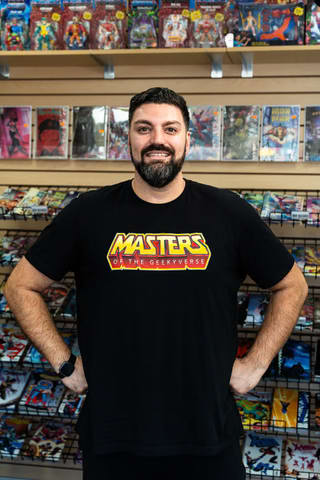
They understand that comic culture and film culture exist on the same continuum. Their shop is a place where newcomers get the same respect as silver age collectors, and Wednesday new release days generate real excitement.
LI Comic Shop is a community laboratory for cross-media discovery—comic readers becoming film buffs, movie fans discovering manga, everyone understanding that great storytelling transcends format. The anime boom represents another bridge between our worlds.
Jim's a true believer who can explain how Akira changed everything, while Tes approaches anime with healthy skepticism—a dynamic that makes their conversations particularly rich. They've watched customers discover that anime films like Ghost in the Shell ask philosophical questions Hollywood won't touch.
Their insights will help us trace how visual storytelling evolved from panel to screen, how comics prepared audiences for cinema's possibilities, why physical media shops remain essential cultural spaces.
Watch for their guest piece in Cognitive Frames next week.
Looking Ahead: Jazz, Noir, and November Experiments
On Sunday, November 2nd, we're returning to the Gold Theater to screen Edgar G. Ulmer's classic Detour (1945) with live jazz accompaniment. This 1945 noir masterpiece—created with minimal resources but maximum artistry—deserves to be experienced with musicians who understand that constraint often produces the most innovative art.
We're thrilled to be working with two local high school students who've formed their own jazz combo—a saxophonist and vocalist whose understanding of the genre's emotional architecture belies their age.
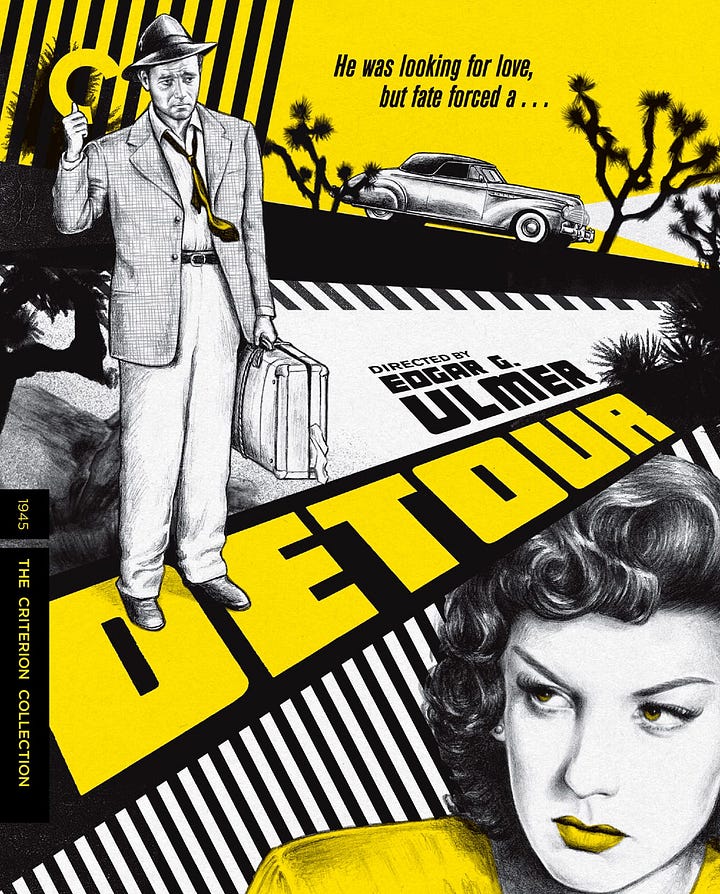

Their involvement represents everything we believe in: that expertise comes in many forms, that young artists deserve serious platforms, and that the connection between jazz and noir runs deeper than mere historical coincidence.
The synthesis of live music with classical cinema represents our commitment to creating singular theatrical experiences. Each screening should feel unrepeatable, existing only in that moment for that specific audience.
These experiments in singular theatrical experiences—Rear Window with film historian Foster Hirsch, Ghost in the Shell with comic shop philosophers, Detour with teenage jazz musicians—are just the beginning.
This fall, we're expanding both our reach and our vision with two initiatives that challenge how cultural programming and criticism work on Long Island.
Expanding Our Programming
As we look to increase the frequency of our programming, our near-term goal is to establish regular repertory screenings at our local Regal Theater in Lynbrook.
This compliments our library programming by allowing us to bring in 35mm prints, host visiting filmmakers and host larger screenings right in the midst of Lynbrook’s commercial district.
An expansion of this sort requires partnerships with individuals and businesses that recognize the value of supporting cultural infrastructure.
We're seeking local and national sponsors who understand that investing in arts programming creates lasting community value.
Early founding sponsors1 will have the opportunity to shape our programming direction, create custom events for their organizations, and associate their brands with Long Island's emerging cultural renaissance.
Additionally, board member Geoff Wolinetz will be exploring opportunities to establish Cognitive Film Society screenings in Los Angeles, creating a bi-coastal dialogue about cinema. This expansion could offer sponsors reach in both markets, connecting audiences unified by cultural engagement rather than geography.
For partnership inquiries and our full sponsorship packet, contact dhesney@cognitivefilms.org.
But programming is only half the equation. Criticism and discussion are essential.
Cognitive Frames: In the Room
This fall, we're launching Cognitive Frames: In the Room—bringing our democratic approach to all live performance. Opera, symphony, theater, rock concerts, jazz clubs. The same philosophy that’s driven our film criticism now turns to any room where culture happens live.
Our critics aren't assigned performances. They choose them. They save for tickets, wait in rush lines, climb to the Family Circle. They write not because they must, but because what they witnessed demands documentation. The view from the cheap seats—the seats bought out of love—often sees clearest.
Consider classical music coverage.
This week, The New York Times posted a job listing for a classical music critic who can create “multimedia-first criticism,” appear on podcasts, and deliver reviews on camera. After reassigning four senior journalists this summer, it’s clear they're not seeking a critic—they're seeking a content creator who happens to know Mahler from Mozart. They want someone to make classical music 'accessible to a general audience,' as if the problem is the audience, not the coverage.
In the Room believes the opposite. Whether it's opera or hardcore, symphony or stand-up, the audience already gets it. The high school student at their first Dudamel performance sees things “a content creator” will ignore. The subscriber who's watched the Met evolve over decades brings perspective no multimedia strategy can replicate. The person who saved for months for a single ticket understands the stakes.
We need a multitude of voices - not a singular authority that’s been simplified and flattened into bland nothingness.
Our inaugural reviews will focus on the new classical season in New York, beginning with Gustavo Dudamel's opening week as the NY Philharmonic's Music Director Designate (September 11-16), featuring 22-year-old sensation Yunchan Lim performing Bartók's Piano Concerto No. 3.
Dudamel's appointment represents a generational shift at the Phil, while Lim—who stunned the classical world winning the Van Cliburn Competition at 18—brings fresh perspective to Bartók's final masterpiece, composed during the Hungarian composer's exile in New York.
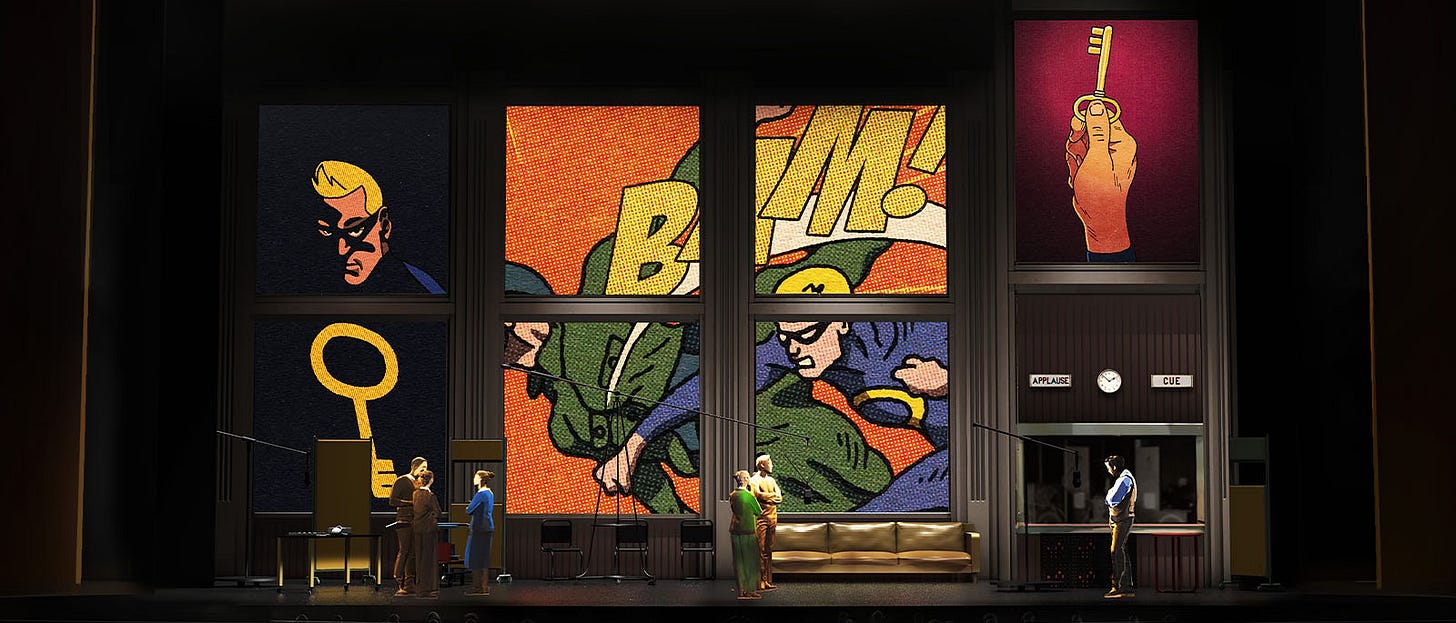
We'll follow this with the Metropolitan Opera's world premiere production of The Amazing Adventures of Kavalier & Clay, which opens September 21 and runs through October 11. Mason Bates and Gene Scheer's adaptation of Michael Chabon's Pulitzer Prize-winning novel perfectly embodies our belief in artistic porousness: a story about Jewish comic book creators fighting fascism through Superman-like fantasies, now becoming opera at America's most prestigious house.
If our press credentials are approved, we'll also be covering the 63rd New York Film Festival (September 26-October 14) in full, bringing this same democratic approach to cinema's prestigious showcase.
These are important developments in our culture (or at least we think so) and they deserve due consideration.
Here's what makes our coverage different: We'll publish credentialed press reviews alongside perspectives from the Family Circle, the rush ticket line, the subscription holder in their twentieth season.
If you're experiencing these performances—whether from press seats or standing room, whether it's your first opera or your fiftieth—we want your perspective.
The person who saved for months for a single ticket often sees things the regular critic misses. The subscriber who's watched the Phil evolve over decades brings different insight than opening night society coverage.
We welcome your voices. Your perspectives enrich our collective understanding.
Submit film criticism or performance reviews to submissions@cognitivefilms.org.
No really, thank you!
What started six months ago as friends wanting to watch great films with their neighbors has become something larger: proof that culture thrives when communities claim it.
We're not interested in nostalgia for how culture used to work. We're building how it works now: democratic, passionate, present. Not mediated by algorithms, but by people who show up because they’re excited about art and discussion.
See you at the Gold Theater on August 21 and “In the Room” this Fall.
Thanks again for your support.
-The Cognitive Film Society
As a registered 501(c)(3) nonprofit organization, the Cognitive Film Society can accept tax-deductible contributions. Corporate and individual sponsors receive formal acknowledgment letters for all donations, detailing the amount contributed and confirming our tax-exempt status for their accountants.
Sponsorship levels range from individual screening support ($500-$2,500) to full season partnerships ($10,000+), with benefits scaled accordingly—from logo placement and employee screening passes to naming rights and custom programming.
We’re flexible!





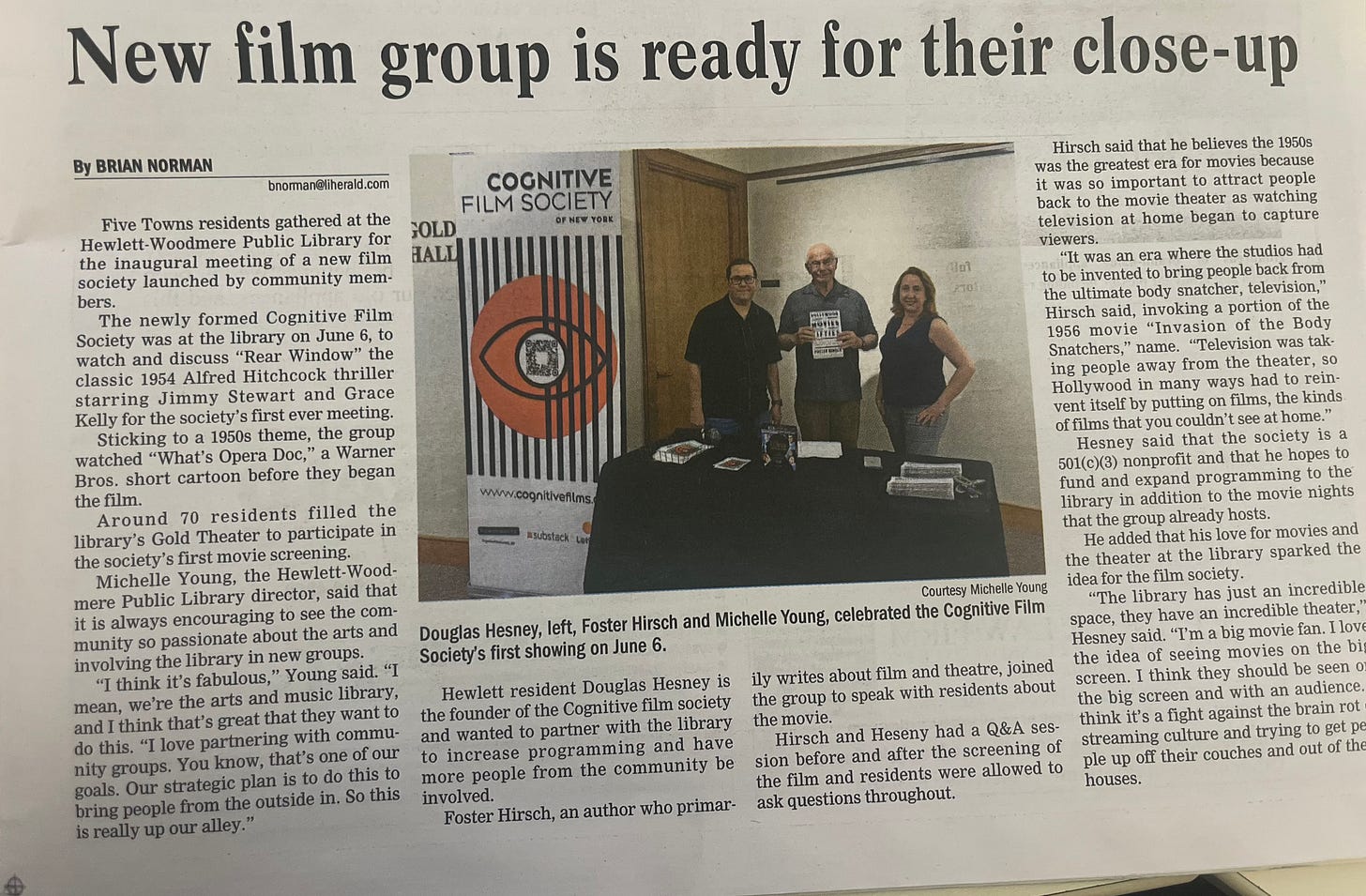

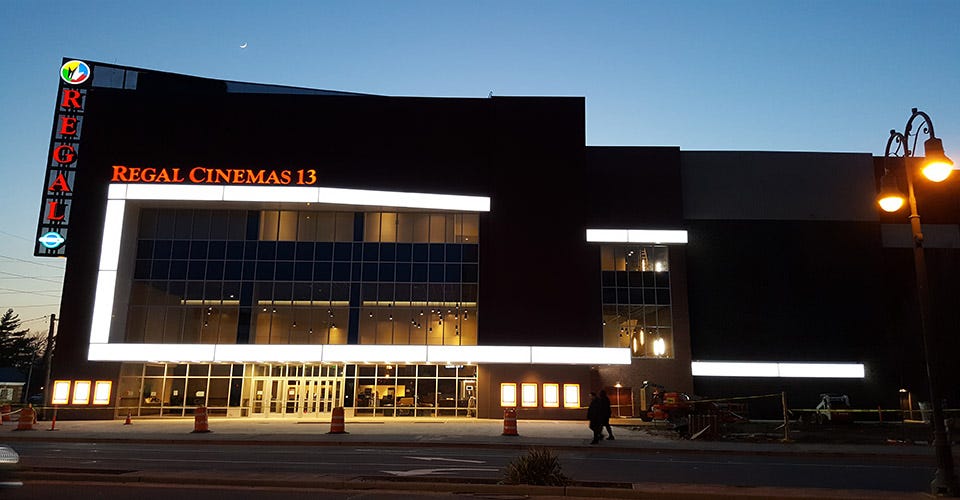
Thanks for the hat-tip, pal!
Fromtheyardtothearthouse.substack.com